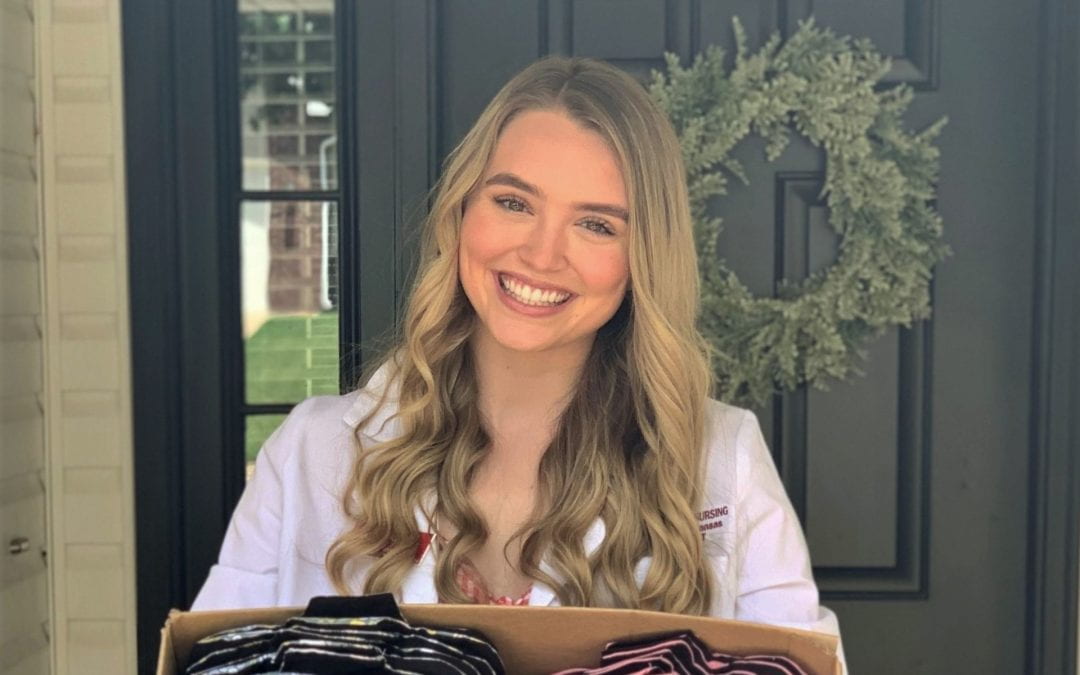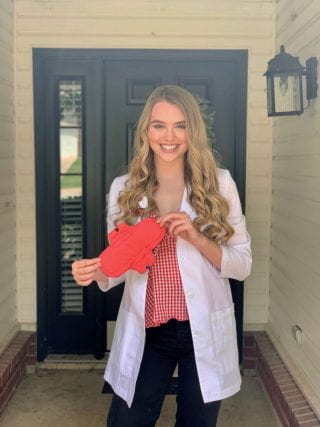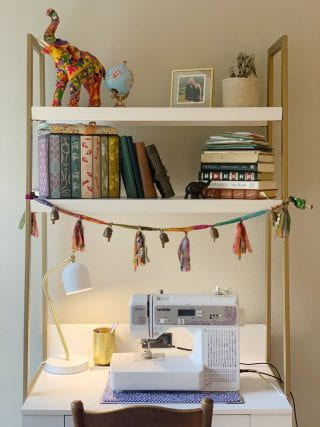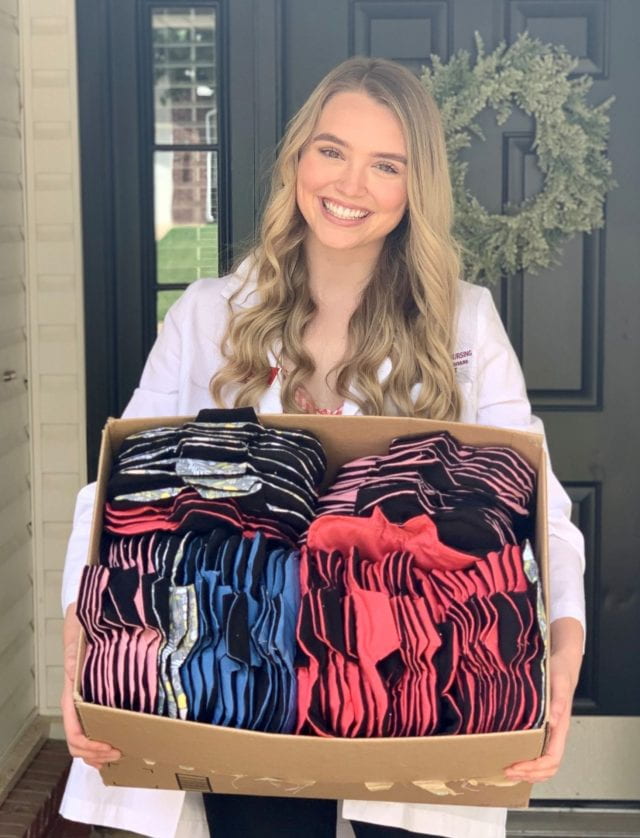Nursing student McKenzie Canon was disappointed this summer when her month-long medical outreach trip was canceled due to COVID-19.
McKenzie had been counting on helping girls in Ghana stay in school by donating a health product she invented for them: reusable feminine hygiene pads.
“Currently, a large percentage of young Ghanaian women stop attending school when they begin menstruation, due to inaccessibility to proper feminine hygiene products and cultural taboos,” she said.
A senior at the University of Arkansas, the plan was for McKenzie to travel to Ghana as part of the Eleanor Mann School of Nursing’s Community Health Study Abroad program. She had created a teaching plan centered around the principles of Keeping Girls in School, an international program seeking to stop educational limitations placed on women in developing countries due to the complexities of puberty.
In Ghana, when formal education ends between the ages of 12 and 16, it directly impacts a woman’s role in the community, reproductive health, and opportunities to establish herself economically, McKenzie said.
“All these life experiences can be improved by keeping them in school,” she said.
That’s why McKenzie designed the reusable pads. She learned to sew. She created a pattern for them and enlisted her family to help test and make them. Her cadre of seamstresses had created more than 400 when the trip was canceled.
She looks forward to introducing the program next summer.
McKenzie was meticulous while researching her project, which has turned into her Honor’s College thesis. She wanted to come up with a sustainable solution that provided more than just education.
“I want to provide solutions that are well thought out and combat potential issues before they arise. Using resources that are not culturally acceptable, environmentally safe, or sustainable in the long-term create more harm in communities than benefits,” she said. “An uneducated or band-aid solution could cause harm to the Ghanaian community.”
Reusable feminine pads last up to five years, which could potentially sustain women from the beginning of puberty to the end of their schooling. It also removes the environmental harm that would come from using disposable products in an area lacking waste management systems.
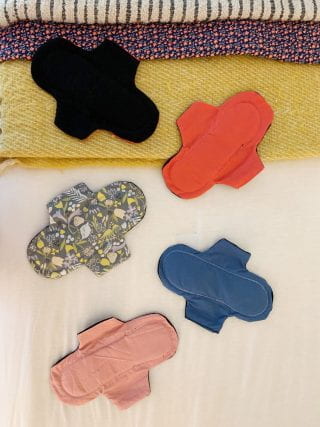 The fabric McKenzie used is antimicrobial to prevent the buildup of bacteria and reduce the risk of leakage. McKenzie said the fact that the study abroad program happens annually ensures follow-up of the project to address any needed changes and continued resources for new women beginning puberty.
The fabric McKenzie used is antimicrobial to prevent the buildup of bacteria and reduce the risk of leakage. McKenzie said the fact that the study abroad program happens annually ensures follow-up of the project to address any needed changes and continued resources for new women beginning puberty.
After graduating in May 2021, McKenzie plans to become a certified Nurse Midwife so she can train midwives overseas and learn from the international community.
“I cannot wait to have a continued impact on women’s health globally as my full-time career,” she said.
Her father’s worldwide travel when she was a child piqued McKenzie’s interest in foreign countries. She learned about healthcare disparities and poverty through a variety of experiences, including serving on the executive board of a student-run nonprofit that raised money to pay hospital debts during her senior year of high school in Overland, Kansas.
“I found it very troubling that something as simple as geography could determine someone’s life outcome,” she said. “There are others who deserve more than the life they have been given.”
McKenzie is passionate about bringing resources to areas that lack accessibility and advocacy.
“I want to improve quality of life and living standards across the globe so people have more opportunities and a greater chance at stepping outside of the cycle of poverty,” she said. “I’m also passionate about keeping communities and culture intact.”

